McCabe & Mrs. Miller is a 1971 American revisionist western film starring Warren Beatty and Julie Christie, and directed by Robert Altman. The screenplay is based on the 1959 novel McCabe by Edmund Naughton. Altman referred to it as an "anti-western film" because the film ignores or subverts a number of Western conventions. In 2010, the film was selected for preservation in the United States National Film Registry by the Library of Congress as being "culturally, historically or aesthetically significant".
| McCabe & Mrs. Miller | |
|---|---|
Theatrical release poster by Richard Amsel | |
| Directed by | Robert Altman |
| Produced by | Mitchell Brower David Foster |
| Written by | Robert Altman Brian McKay |
| Based on | McCabe by Edmund Naughton |
| Starring | Warren Beatty Julie Christie René Auberjonois |
| Music by | Leonard Cohen |
| Cinematography | Vilmos Zsigmond |
| Edited by | Lou Lombardo |
| Distributed by | Warner Bros. |
Release date |
|
Running time | 121 minutes |
| Country | United States |
| Language | English |
| Box office | $8,200,000 |
Screenplay
In 1902 Washington State, a gambler named John McCabe arrives mysteriously and mumbling to himself in the town of Presbyterian Church, named after its only substantial building, a tall but mostly unused chapel. McCabe quickly takes a dominant position over the town's simple-minded and lethargic miners, thanks to his aggressive personality and rumors that he is a gunfighter.
McCabe establishes a makeshift brothel, consisting of three prostitutes purchased for $200 from a pimp in the nearby town of Bearpaw. British cockney Constance Miller arrives in town and tells him she could run a brothel for him more profitably; unknown to him she is addicted to opium. The two become financially successful business partners, open a higher class establishment, including a bathhouse for hygiene, and a romantic relationship develops between the two.
As the town becomes richer, Sears and Hollander, a pair of agents from the Harrison Shaughnessy mining company in Bearpaw, arrive to buy out McCabe's business, as well as the surrounding zinc mines. Shaughnessy is notorious for having people killed when they refuse to sell. McCabe does not want to sell at their initial price of $5,500, but he overplays his hand in the negotiations in spite of Mrs. Miller's warnings that he is underestimating the violence that will ensue if they do not take the money.
Three bounty hunters – Butler, Breed and Kid – are dispatched by the mining company to kill McCabe, as well as make an example of him, but he refuses to abandon the town. Clearly afraid of the gunmen when they arrive in town, McCabe initially tries to appease them. Butler confronts him about his earlier story that he is successful gunfighter "Pudgy McCabe", who shot someone in a card game. After hearing McCabe's story, with the addition that the gun was a Derringer, Butler proclaims that McCabe has never killed anyone in his life. McCabe later tries to find Sears and Hollander to try to settle on a price, but upon learning that they have left the area, he visits lawyer Clement Samuels to try to obtain legal protection from Harrison Shaughnessy. Although the lawyer agrees to help McCabe bust the mining company's monopoly on the area, McCabe returns to town convinced that he must face the bounty hunters on his own.
When a lethal confrontation becomes inevitable, McCabe arms himself and hides in the chapel during the early morning hours, but is evicted by the armed pastor, who is then shot by Butler in a case of mistaken identity. A broken lantern starts a fire in the church and the townspeople rush to help extinguish it. McCabe continues his evasion and, by shooting them in the back from hidden positions, kills two of the would-be assassins, one of whom wounds McCabe as he falls. As the townsfolk mobilize to fight the chapel fire, McCabe plays cat-and-mouse with the last gunman, Butler. McCabe is shot in the back and mortally wounded but feigns death and kills Butler with a Derringer when he approaches to confirm McCabe's identity. While the townspeople celebrate extinguishing the fire, McCabe dies alone in the snow as Mrs. Miller lies sedated in an opium den.
- Warren Beatty – John McCabe
- Julie Christie – Constance Miller
- René Auberjonois – Sheehan
- Michael Murphy – Eugene Sears
- Antony Holland – Ernest Hollander
- Bert Remsen- Bart Coyle
- Shelley Duvall – Ida Coyle
- Keith Carradine – Cowboy
- Hugh Millais – Butler
- Jace Van Der Veen – Breed
- Manfred Schulz – Kid
- Corey Fischer – Rev. Elliot
- William Devane – Clement Samuels, Esq
- John Schuck – Smalley
- Jackie Crossland – Lily
- Elizabeth Murphy – Kate
- Carey Lee McKenzie – Alma
- Thomas Hill – Archer
- Linda Sorenson – Blanche
- Elisabeth Knight – Birdie
- Janet Wright – Eunice
- Maysie Hoy – Maisie
- Linda Kupecek – Ruth
- Jeremy Newson – Jeremy Berg
- Wayne Robson – Bartender
- Jack Riley – Riley Quinn
- Edwin Collier - Gilchrist
- Robert Fortier – Town Drunk
- Wayne Grace – Bartender
- Rodney Gage – Sumner Washington
- Lili Francks – Mrs. Washington
- Wes Taylor – Shorty Dunn
Background
McCabe & Mrs. Miller is based on Edmund Naughton's 1959 novel McCabe. David Foster, one of the film's producers, had purchased the film rights to the novel in 1968; he'd learned of the novel while negotiating with Ellen Wright (the widow of novelist Richard Wright) over the rights to The Mandarins, a novel by Simone de Beauvoir. Wright was acting as the agent for Naughton, who was then living in Paris and working for the International Herald Tribune. With his partner, Mitchell Broward, Foster then negotiated a deal with the Fox studio for two films. By October, 1968, Foster had commissioned a screenplay from Ben Maddow, a well-known poet and screenwriter.
In 1969, Altman was in post-production on M.A.S.H. and sneaked Foster into the screening; Foster liked the film, and signed Altman to direct a film based on McCabe. They agreed to wait until M.A.S.H. became a box-office hit to take the pitch for McCabe to a studio for funding. A second screenplay – independent of Maddow's – was commissioned from Brian McKay, who completed it in only five weeks. A revised version of that screenplay dated July 1970 became the "shooting script" for the film. Altman and McKay are listed in the film's credits as its screenwriters; Maddow went uncredited.
Foster called Warren Beatty in England, about the film; Beatty flew to New York City to see M.A.S.H. and then flew to Los Angeles, California to sign for McCabe.
The film was originally called The Presbyterian Church Wager, after a bet placed among the church's few attendees, about whether McCabe would survive his refusal of the offer to buy his property. Altman reported that an official in the Presbyterian Church called Warner Brothers, to complain about having its church mentioned in a film about brothels and gambling. The complaint prompted a name change to John Mac Cabe but it was released as McCabe & Mrs. Miller.
Filming
This section does not cite any sources. (October 2013) (Learn how and when to remove this template message) |
The film was shot in West Vancouver and in Squamish, almost in sequential order, a rarity for film makers. The crew found a suitable location for the filming and built up the "set", as McCabe built up the town in the film. Mrs. Miller is brought into town on a J. I. Case 80 HP steam engine from 1912; the steam engine is genuine and functioning and the crew used it to power the lumbermill after its arrival. Carpenters for the film were locals and young men from the United States, fleeing conscription into the Vietnam War; they were dressed in period costume and used tools of the period, so that they could go about their business in the background, while the plot advanced in the foreground.
The crew ran buried hoses throughout the town, placed so they could create the appearance of rain. Since the city of Vancouver generally receives a great deal of rain, it was usually only necessary to turn on the hoses to make scenes shot on the rare days when it didn't rain, to match those shot on days when it did.
It began snowing near the end of shooting, when the church fire and the standoff were the only scenes left. Beatty did not want to start shooting in the snow, as it was in a sense dangerous (expensive) to do so: to preserve continuity, the rest of the film would have to be shot in snow. Altman countered that since those were the only scenes left to film, it was best to start since there was nothing else to do. The "standoff" scene—which is in fact more a "cat and mouse" scene involving shooting one's enemy in the back—and its concurrent church fire scene, were shot over nine days. The heavy snow, with the exception of a few "fill-in" patches on the ground, was genuine; the crew members built snowmen and had snowball fights between takes.
The film, especially the final scene, is atypical of the western genre. The showdown between a reluctant protagonist and his enemies, takes place ungracefully in the snow during the early hours, rather than at "high noon". Instead of hiding indoors and watching the battle unfold outside, the townsfolk are bustling in the streets and largely unaware of the gunfight taking place in their midst. For a distinctive look, Altman and Zsigmond chose to "flash" (pre-fog) the film negative before its eventual exposure, as well as use a number of filters on the cameras, rather than manipulate the film in post-production; in this way the studio could not force him to change the film's look to something less distinctive.
Editing
The editing of McCabe & Mrs. Miller took much longer than its filming. Altman and Lou Lombardo, the editor and second unit director, spent nine months editing the film in North Vancouver, close to the location of the filming itself. The editing was an innovation in its time because the principal storyline about John McCabe and Constance Miller occupies relatively little of the film's running time, especially in the first half of the film. Pauline Kael emphasized this in her 1971 review of the film. She wrote,
The classical story is only a thread in the story that Altman is telling…The people who drop in and out of the place—a primitive mining town—are not just background for McCabe and Mrs. Miller; McCabe and Mrs. Miller are simply the two most interesting people in the town, and we catch their stories in glimpses, as they interact with the other characters and each other… Lives are picked up and let go, and the sense of how little we know about them becomes part of the texture; we generally know little about the characters in movies, but since we’re assured that that little is all we need to know, and thus all there is to know, we’re not bothered by it. Here we seem to be witnesses to a vision of the past…
This aspect of the film's editing also carried through into the film's unusual sound editing, which can blend many conversations and noises and does not emphasize the principal characters. In his textbook on film production, Bruce Mamer wrote,
Robert Altman was famous for using this style of layered dialogue cutting. The frontier barroom scene that opens his McCabe & Mrs. Miller (Louis Lombardo, editor) has snippets of conversations underlying the foreground action.
Ken Dancyger describes the effect in terms of its undermining of dialogue as an element in the film,
Many characters speak simultaneously, and we are aware of the discreteness of their conversations, but as their comments bleed into those of others, the effect is to undermine the dialogue. The scene moves dialogue from the informational status it usually occupies to the category of noise. Language becomes a sound effect. When we do hear the dialogue, it is the speaker who is important rather than what is being said.
Similarly, Jay Beck writes
McCabe & Mrs. Miller represents the full-scale launch of the practice of overlapping dialogue in Altman's cinema. The visual and acoustic strategies in the film avoid foregrounding the main characters in the narrative and the audience has to work to follow the story, or stories, as they unfold.
Leonard Cohen's songs
Other than the music occurring in the ordinary life of Presbyterian Church, the only music for the film is from three songs composed and performed by Leonard Cohen, a Canadian poet who had released his first album of songs in 1967. Their importance is emphasized by Scott Tobias, who wrote in 2014 that "The film is unimaginable to me without the Cohen songs, which function as these mournful interstitials that unify the entire movie."
Altman had liked Cohen's debut album, Songs of Leonard Cohen (1967), immensely, buying additional copies of it after wearing each vinyl record out. He had then forgotten about the album. A few years later, Altman visited Paris, just after finishing shooting McCabe & Mrs. Miller, and rediscovered Cohen's album. He had Lou Lombardo, the film's editor, use the music to maintain a rhythm for the film (in effect using it as a "temp" track). He later said, "I think the reason they worked was because those lyrics were etched in my subconscious, so when I shot the scenes I fitted them to the songs, as if they were written for them."
Watch movie Mccabe %26 Mrs. Miller online on Amazon
Watch movie Mccabe %26 Mrs. Miller online
Watch The Movie On PrimeCoolie Full HD Movie Download
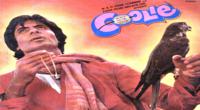
Dombivli Fast Full HD Movie Download
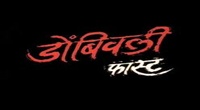
Khandaan (1975) Full HD Movie Download
.jpg)
Paisa Ya Pyar Full HD Movie Download
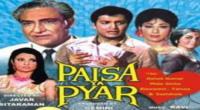
Saheb Bahadur Full HD Movie Download
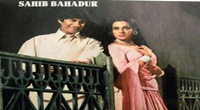
Jaanbaaz (1986) Full HD Movie Download
.jpg)
Sri Raghavendra Full HD Movie Download
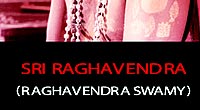
Jai Maa Vaishnav Devi Full HD Movie Download
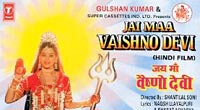
Nandini I Love You Full HD Movie Download

Uljhan (1975) Full HD Movie Download
.jpg)
Siri Siri Muvva Full HD Movie Download

Alludugaru Full HD Movie Download
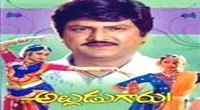
Troy Full HD Movie Download

Manikya Chempazhukka Full HD Movie Download

Padavi Pramanam Full HD Movie Download
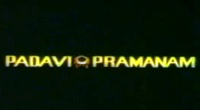
Rustum Full HD Movie Download
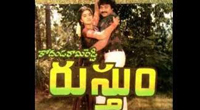
Ottesi Cheputunna Full HD Movie Download
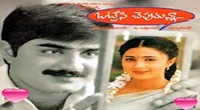
Bhakta Pothana Full HD Movie Download
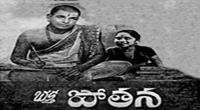
City War Full HD Movie Download
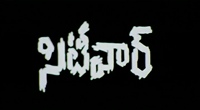
Chandni Full HD Movie Download

Vijay Full HD Movie Download

Download latest Movie from bollywood
- 1> baaghi 3
- 2> THE SKY IS PINK MOVIE FULL STORY AND REVIEW
- 3> Luka Chuppi
- 4> TO ALL THE BOYS I’VE LOVED BEFORE
- 5> Kabir Singh
- 6> Street Dancer 3D
- 7> Simmba
- 8> Gone Girl
- 9> The Girl Who Lived
- 10> Ludo
- 11> DILWALE DULHANIA LE JAYENGE
- 12> GUILTY
- 13> The Godfather
- 14> Adventures of Rusty
- 15> Sooryavanshi
- 16> Satyameva Jayate 2
- 17> Thappad
- 18> Bhool Bhulaiyaa 2
- 19> KGFChapter 2
- 20> Mardaani 2
- 21> Pinjar
- 22> Shivaji maharaj
- 23> Ek Villian 2
- 24> Hungama 2
- 25> Divergent
- 26> Mumbai Saga
- 27> The Internship
- 28> HIT (telugu)
- 29> Panga
- 30> The perfect date
- 31> 16 December
- 32> Gopala Gopala (Telugu)
- 33> Brahmastra
- 34> Gangubai Kathiawadi
- 35> Manmadhudu
- 36> Nenu local
- 37> Mahanati
- 38> Shatamanam bavathi
- 39> Lagaan
- 40> After
- 41> MOM
- 42> Shamshera
- 43> Raguvaran BTech
- 44> Khakee
- 45> The villain
- 46> OM
- 47> Mr. perfect
- 48> Bueatifull mind
- 49> Hichki
- 50> Gabbar Singh
- 51> Jogi
- 52> Before Sunrise
- 53> Before Sunset
- 54> Before Midnight
- 55> The Big Bull
- 56> Top Gun: Maverick
- 57> The Purge
- 58> The Sky is Pink
- 59> Laxmmi Bomb
- 60> Sadak 2
- 61> Sufna
- 62> Prithviraj
- 63> PK
- 64> Coolie No 1(2020)
- 65> Black Widow
- 66> Dear Zindagi
- 67> Dil Bechara
- 68> PHIR HERA PHERI
- 69> WAR
- 70> Dostana
- 71> RRR: Roudram Ranam Rudhiram
- 72> Maidan
- 73> Dabbang 3
- 74> Chhalaang
- 75> life as we know it
- 76> SherShaah
- 77> Sandeep Aur Pinky Faraar
- 78> Event Horizon
- 79> 83
- 80> Radhe: Your Most Wanted Bhai
- 81> Gunjan Saxena: The Kargil Girl
- 82> Mr India
- 83> Vivah
- 84> Anokha Bandhan
- 85> Ghost
- 86> Bhoot: Part One - The Haunted Ship
- 87> Haseen Dilruba
- 88> Laal Singh Chaddha
- 89> Qismat
- 90> Rajput
- 91> Drive
- 92> Dil Chahta Hai
- 93> Dil Ki Baazi
- 94> Dil Ka Rishta
- 95> Teesri Manzil
- 96> Dil
- 97> Love Aaj Kal
- 98> Khaali Peeli
- 99> Bunty Aur Babli 2
- 100> Atrangi Re
- 101> Gulabo Sitabo
- 102> Jodi
- 103> Suraj Pe Mangal Bhari
- 104> Deewana
- 105> Attack
- 106> Sardar Udham Singh
- 107> Toofan
- 108> THE LOVEBIRDS
- 109> Jersey
- 110> Ginny Weds Sunny
- 111> Thalaivi
- 112> Shiddat
- 113> Angels vs Zombies
- 114> Koi Mil Gya
- 115> Thank God
- 116> Bhuj: The Pride of India
- 117> Hum Aapke Hain Kaun
- 118> The Platform
- 119> Bird Box
- 120> Roohi Afzana
- 121> Torbaaz
- 122> Nikamma
- 123> World War Z
- 124> Extraction
- 125> Train to Busan
- 126> Life of Pi
- 127> SHAADI MEIN JROOR AANA
- 128> Himmat Aur Mehnat
- 129> To All The Boys: P.S. I Still Love You
- 130> Mimi
- 131> Good Newwz
- 132> Shubh Mangal Zyada Saavdhan
- 133> Raabta
- 134> Harry Potter and the Philosopher's Stone
- 135> Harry Potter and the Chamber of Secrets
- 136> Chhapaak
- 137> War of the Worlds
- 138> Harry Potter and the Prisoner of Azkaban
- 139> Harry Potter and the Goblet of Fire
- 140> MURDER MYSTERY
- 141> Shakuntala Devi
- 142> Bachchan Pandey
- 143> Jayeshbhai Jordar
- 144> Sheer Qorma
- 145> Saina
- 146> 'O' Pushpa I hate tears
- 147> Kedarnath
- 148> MS Dhoni The Untold Story
- 149> Chhichhore
- 150> Badhaai Ho
- 151> Unstoppable
- 152> Oz the Great And Powerful
- 153> The Girl on the Train
- 154> Haathi Mere Saathi 2020
- 155> The Conjuring: The Devil Made Me Do It
- 156> Gandhi Se Pehle Gandhi
- 157> The Song of Scorpions
- 158> Srimanthudu
- 159> Hello Guru Prema Kosame
- 160> Beauty and The Beast
- 161> Black Panther
- 162> Charlie and the Chocolate Factory
- 163> Bole Chudiyan
- 164> Fidaa
- 165> Duvvada Jagannadham
- 166> Bruce Lee: The Fighter
- 167> Hyper
- 168> Yaara
- 169> Red (2020)
- 170> Shivam
- 171> That Is Mahalakshmi
- 172> Nishabdham
- 173> Aashram 2020 web series
- 174> Laxmii
- 175> Mismatched
- 176> STUDENT OF THE YEAR 2
- 177> NAIL POLISH
- 178> Ramprasad Ki Tehrvi
- 179> KAAGAZ
- 180> 12 o Clock
- 181> The Power
- 182> bolo hau
- 183> Tribhanga
- 184> JAMUN
- 185> Madam Chief Minister
- 186> Maasaab
- 187> Aadhaar
- 188> Tanhaji
- 189> Bhaagi 3
- 190> Bhootnath
- 191> MALANG
- 192> Jai Mummy Di
- 193> Haathi Mere Saathi 2021
- 194> Shakeela
- 195> Unpaused
- 196> Annayya
- 197> Vamsoddharakudu
- 198> Mrugaraju
- 199> Narasimha Naidu
- 200> Sankranti
- 201> Manasu Maata Vinadhu
- 202> Anjaane
- 203> Apaharan
- 204> Bachke Rehna Re Baba
- 205> Bewafaa
- 206> Roohi
- 207> Radhe
- 208> Zindagi Khoobsoorat Hai
- 209> Yeh Mohabbat Hai
- 210> Yeh Kya Ho Raha Hai?
- 211> The Tomorrow War
- 212> DehradunDiary
- 213> Meri Shaadi Karaoo
- 214> Matruu Ki Bijlee Ka Mandola
- 215> No One Killed Jesica
- 216> Aag Ka Goola
- 217> Eight Million Dollars
- 218> Three Hundred
- 219> Cats and Dog
- 220> Decoy
- 221> Gold Rush
- 222> You Have Got Mail
- 223> Final Destination three
- 224> Tofan
- 225> Jungle
Request for Download movie Mccabe %26 Mrs. Miller
- Bollywood movies
- Latest Bollywood movies
- Download all bengali movies
- Download all bhojpuri movies
- Download all english movies
- Download all gujarati movies
- Download all hindi movies
- Download all kannada movies
- Download all malayalam movies
- Download all marathi movies
- Download all oriya movies
- Download all punjabi movies
- Download all tamil movies
- Download all telugu movies
- Bollywood action movies
- Bollywood adventure movies
- Bollywood animation movies
- Bollywood classical movies
- Bollywood comedy movies
- Bollywood crime movies
- Bollywood devotional movies
- Bollywood documentary movies
- Bollywood drama movies
- Bollywood family movies
- Bollywood fantasy movies
- Bollywood historical movies
- Bollywood history movies
- Bollywood horror movies
- Bollywood musical movies
- Bollywood mystery movies
- Bollywood mythological movies
- Bollywood patriotic movies
- Bollywood romance movies
- Bollywood romantic movies
- Bollywood sci-fi movies
- Bollywood social movies
- Bollywood spiritual movies
- Bollywood sports movies
- Bollywood suspense movies
- Bollywood thriller movies
- Bollywood war movies
- Hot actress list
- Hot gujarati actress list
- Hot tamil actress list
- Hot bhojpuri actress list
- Hot assam actress list
- Hot bihari actress list
- Hot jammu and kashmir actress list
- Hot gujarati actress list
- Hot haryana actress list
- Hot konkani actress list
- Hot marathi actress list
- Hot odia actress list
- Hot punjabi actress list
- Hot rajasthani actress list
- Hot kannada actress list
- Hot malayalam actress list
- Hot telugu actress list
- Hot tulu actress list
- Hot Actress list from Indian city
- Hot actress list from ahmedabad
- Hot actress list from alappuzha
- Hot actress list from bangalore
- Hot actress list from bangalore
- Hot actress list from bhopal
- Hot actress list from chandigarh
- Hot actress list from chennai
- Hot actress list from guwahati
- Hot actress list from hyderabad, india
- Hot actress list from indore
- Hot actress list from jaipur
- Hot actress list from kannur
- Hot actress list from kochi
- Hot actress list from kolkata
- Hot actress list from kollam
- Hot actress list from kottayam
- Hot actress list from kozhikode
- Hot actress list from lucknow
- Hot actress list from madurai
- Hot actress list from mangalore
- Hot actress list from mumbai
- Hot actress list from mysore
- Hot actress list from new delhi
- Hot actress list from patna
- Hot actress list from pune
- Hot actress list from thiruvananthapuram
- Hot actress list from thrissur
- Hot actress list from tiruchirappalli
- Hot actress list from vijayawada
- Hot actress list from visakhapatnam
- All Bollywood Movies
- Bollywood Celeb
- >Art Director
- >Audiography
- >Background Music
- >Banner
- >Choreographer
- >Cinematographer
- >Costume Designer
- >Dialogue Writer
- >Director
- >Distributor
- >Editor
- >Executive Producer
- >Hair Stylist
- >Lyricist
- >Music Director
- >Photographer
- >Playback Singers
- >Presenter
- >Producer
- >Production Company
- >Production Designer
- >Screenplay
- >Singer
- >Sound
- >Actor
- >Story Writer
- >Studio
- >Video Director
- >Miscellaneous
- >Publicity (pro)
- >Web Creator
- >Production Labs
- >Publicity Design
- >Publicity Stills
- >Writer
- >Miscellaneous Artists
- >Visual Effects
- >Reporter
- >Music Company
- >Shooting Studios
- >Picturised On
- >Line Producer
- >Co Producer
- >Asst Director
- >Casting Director
- >Cinematography
- >Choreography
- >Dialouge
- >Editing
- >Lyrics
- >Music
- >Story
- >Playback Singer Female
- >Playback Singer Male
- >Actor In A Comic Role (male/female)
- >Child Artiste
- >Ensemble Cast
- >Actor Popular Choice (male)
- >Actor Popular Choice (female)
- >Sa Re Ga Ma Pa Song Of The Year
- >Actor In Supporting Role
- >Actress In Supporting Role
- >Actor In Leading Role
- >Art Direction
- >Actress In Leading Role
- >Sound Recording
- >Costume Design
- >Special Effects
- >Action
- >Actor In A Negative Role
- >Lifetime Achievement Award
- >Cinematic Exellence (director)
- >Cinematic Exellence (male)
- >Cinematic Exellence (female)
- >International Male Icon
- >International Female Icon
- >Actor In A Supporting Role (male)
- >Actor In A Supporting Role (female)
- >Actor In A Comic Role
- >Playback Singer (male)
- >Playback Singer (female)
- >Most Promising Debut (female)
- >Most Promising Debut (male)
- >Most Promising Director
- >Sound Design
- >Lifetime Jodi
- >Marketed Film
- >Jury Award For Best Actor
- >Jury Award For Best Actress
- >Jury Award For Best Film
- >Jury Award For Best Director
- >Playback Singer(male)
- >Lifetime Acheivement Award (male)
- >Excellence Award
- >Jodi Award
- >Performer Of The Year
- >Presented By
 Story of movie Mccabe %26 Mrs. Miller :
Story of movie Mccabe %26 Mrs. Miller : 